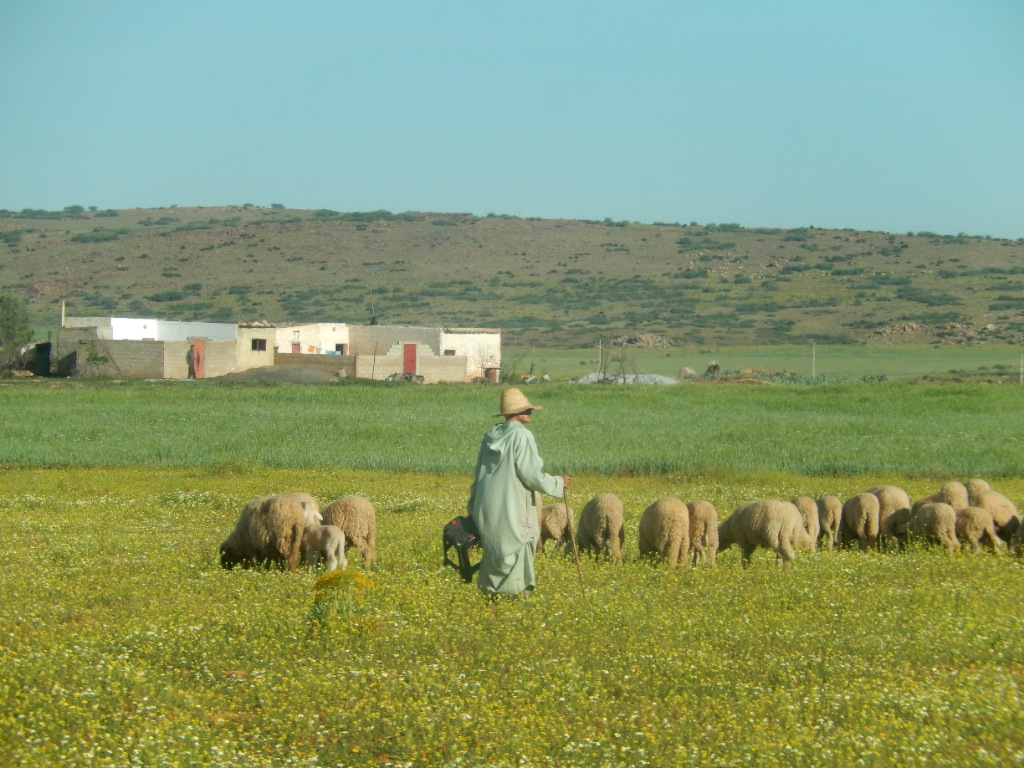Here you will find some thoughts and reflections on Islamic Agroecology.
Cycles, spins and turns
Bismillahirrahmanirrahim
In cycles and turns, the universe sings,
A symphony of creation, from the One King.
Galaxies swirl in majestic flight,
In submission to Him, the Lord of Light.
The earth, a cradle of life’s rebirth,
From dust to life, a testament of worth.
Nutrients cycle in a divine decree,
Sustained by His mercy, for all to see.
In every atom, His signs unfold,
A cycle of submission, in stories untold.
From birth to death, and death to birth,
A reminder for souls, returning to the earth.
In this grand design, we find our place,
A cycle of worship, by His grace.
Turn to Him, in every phase,
For in His remembrance, hearts find solace.

Why Islamic Agroecology?
Islamic Agroecology: Integrating Spirituality with Sustainable Agriculture
In the contemporary landscape of sustainable agriculture, various agroecological movements have emerged, each striving to balance human needs with environmental sustainability. However, many of these movements are primarily focused on management techniques and social issues, often overlooking the profound spiritual dimensions that can deepen our connection to the natural world. Islamic Agroecology offers a unique perspective by integrating spiritual insights with sustainable agricultural practices, fostering a holistic understanding of our place within the ecosystem and our responsibilities as caretakers of the Earth.
The Spiritual Gap in Conventional Agroecological Movements
Most modern agroecological movements emphasize practical aspects such as soil health, water conservation, and biodiversity. They advocate for techniques like crop rotation, organic farming, and permaculture, which are crucial for sustainable food production. Additionally, these movements often address social issues, including equitable land distribution, fair labor practices, and community resilience. While these aspects are undeniably important, they tend to focus predominantly on the physical and socio-economic dimensions of agriculture, leaving a significant gap in addressing the spiritual connection between humans and the natural world.
The Role of Spirituality in Understanding Ecological Processes
The natural world is governed by intricate processes, such as the nitrogen cycle, which plays a critical role in soil fertility and plant growth. These cycles reflect the complex interdependencies within ecosystems, where each element, from microorganisms to plants and animals, contributes to the overall balance. Viewing these processes through a spiritual lens can enhance our appreciation of their significance and the underlying unity of creation. In Islamic Agroecology, these natural phenomena are seen as signs of a greater, divine order. The Quran frequently encourages contemplation of the natural world as a means to understand and appreciate the Creator’s wisdom and power. This spiritual perspective fosters a sense of humility and responsibility, reminding us that we are not separate from nature but an integral part of it. Recognizing the sacredness of these cycles can inspire more conscientious and respectful agricultural practices.
Islamic Agroecology: A Holistic Approach
Islamic Agroecology teaches that humans are stewards (khalifah) of the Earth, entrusted with its care and preservation. This stewardship is not merely a duty but a profound honor that comes with the responsibility to maintain the balance and harmony of the natural world. This principle encourages sustainable practices that are in harmony with ecological systems, ensuring that resources are used wisely and conserved for future generations. This approach is deeply rooted in the concept of Tawhid, the oneness of God, which implies the interconnectedness of all creation. By recognizing the divine presence in every aspect of the natural world, Islamic Agroecology promotes a sense of reverence and respect for the environment. This spiritual framework can lead to more sustainable agricultural practices that are aligned with both ecological principles and ethical values.
Practical Implications and Benefits Integrating spirituality with agroecology has several practical implications:
1. Enhanced Environmental Stewardship: A spiritual perspective encourages farmers to adopt practices that protect and enhance the natural environment, such as organic farming, conservation tillage, and agroforestry.
2. Community and Social Well-being: Islamic Agroecology promotes social justice and equity, ensuring that agricultural practices benefit all members of the community, particularly the marginalized and vulnerable.
3. Holistic Health: By emphasizing the interconnectedness of human health and environmental health, this approach supports the production of wholesome, nutritious food while maintaining ecosystem integrity.
4. Resilience and Sustainability: A spiritually-informed approach to agriculture fosters resilience by promoting biodiversity, soil health, and water conservation, which are essential for long-term sustainability.
Take home message
Islamic Agroecology offers a comprehensive framework that integrates spiritual, ethical, and ecological dimensions, providing a profound understanding of our role as caretakers of the Earth. By viewing agricultural practices through a spiritual lens, we can cultivate a deeper connection to the natural world, leading to more sustainable and harmonious ways of living. As we face the pressing environmental challenges of our time, this holistic approach can guide us towards a future where human prosperity and ecological health are mutually supportive and deeply interconnected.
